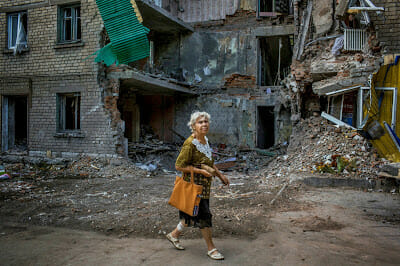 Father Mychayl is a Ukranian Greek Catholic priest from Kiev, who lives the Focolare spirituality. From the pages of Città Nuova magazine he helps us to follow the events that are taking place in his beloved and devastated country. A year after the outbreak of the conflict we asked him to give us his read on what has happened.
Father Mychayl is a Ukranian Greek Catholic priest from Kiev, who lives the Focolare spirituality. From the pages of Città Nuova magazine he helps us to follow the events that are taking place in his beloved and devastated country. A year after the outbreak of the conflict we asked him to give us his read on what has happened.
“Nearly a year has gone by since the revolt on Maidan Square and up until now there have been 5000 deaths and over a million refugees. The war in Donbass has lasted for months. People are dying, the infrastructure is at the point of collapse, and hundreds of thousands of people are fleeing. Inside the patchwork of territories controlled by Ukrainians and by separatists, chaos of the gangs, the commanders who are at war with one another, the poorly-armed and even more poorly trained military may all have the side effect of becoming a war of everyone against everyone.
According to Father Mychayl this is why now more than ever Ukraine needs an education on peace with everyone actively involved: young and old, teachers and children, parents and children: “A simple but engaging education on peace, based on the connection between theory and practice, values and experience. An education to affirm the culture of Peace, the only one able to respect and respond to everyone’s real and honest questions on the difficult road toward universal brotherhood in Ukraine.”
When asked what steps would be necessary, he said: “Allow me to answer with something Chiara Lubich said in London in 2004: ‘(. . .) it would almost be necessary to propose to all those acting in politics to formulate a pact of brotherhood for their country, which places the good of the country well above any partial interest, be it individual, group, class or party. Because brotherhood offers surprising possibilities: it allows you to hold together and appreciate needs that might otherwise develop into irreconcilable conflict. For example, the experiences of local autonomies could be joined to a sense of common history; awareness of the importance of international bodies and of all the processes that tend to overcome barriers and allow important steps in the direction of unity in the human family.’”
But the Ukraineian crisis has triggered the largest wave of refugees, since the Balkan wars: over 900,000 internally displaced persons. “It is no longer possible to live a normal life in the besieged city of Donetsk. The elderly – second-time witnesses of the horrors of war – are dying for lack of medical care, or have had to leave their homes. Many are not receiving the summer pension. In areas controlled by separatists there is everything in the shops and pharmacies, but no money. Banks and post offices have been shut down.”
How can houses, roads and bridges be rebuilt, which are not only structural connections, but a means of healing invisible wounds? “It’s not an easy thing. Giving psychological help to the affected populations is less easy than building roads or sending humanitarian aid. For several years now Sophia University Institute in cooperation with Ukraine Iustitia et Pax, have been offering training courses that prepare young people to be contributing citizens for the common good of Ukraine.”
“After the wave of protests and wars, the country is in need of these “Schools of involvement” that form students in civil and social involvement, rooted in the urban fabric; places where there is experience in political action founded on the values of sharing and nourished on the ideal of ‘universal brotherhood’. Thanks to the Maidan Square protests Ukraine has become a true nation, a people that wishes to build its life upon Christian values. Now it’s a matter of translating those values that were lived out during the protests at the square into the concrete facts in daily life; to take on the expectations and the deepest needs of the country so as not to fall into apathy definitively.”
The schools of involvement do in fact provide interpretative models and operative proposals focused on spreading the culture of peace: “One of Ukraine’s principle challenges is the situation of internal immigrants, their integration in other regions of Ukraine, and the consequences of the hostility. The formation of flexible skills, therefore, to promote intercultural and interreligious dialogue, human rights, mediation, acceptance, mutual respect and reconciliation – these are the objectives we want to place at the centre of the pedagogy of the future.”


 Italiano
Italiano Español
Español Français
Français Português
Português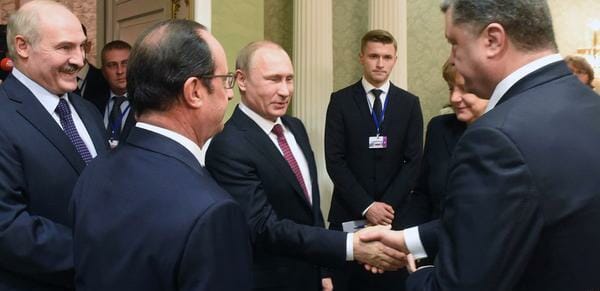
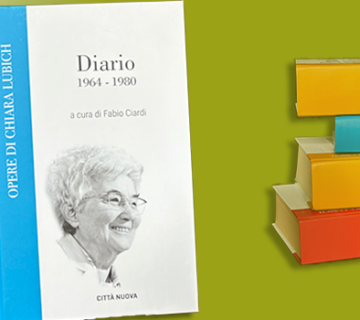
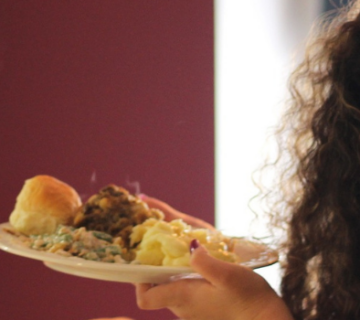
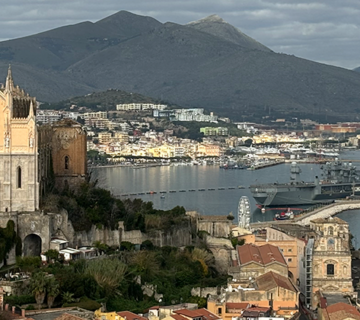

Unico modo duraturo e promuovere la cultura della fraternita’, della pace in una scala piu’ larga posibile tra i giovani e le persone mature. Una lavoro lungo e contanta pazienza. Questa situazione abbiamo vissuto nell’ultima querra nei paesi della exYugoslavia e continua ancora dopo tanti anni.
Io soffro con voi e prego perché si avvicina l’ora della fine dei conflitti. Leggendo le tue parole, mi viene da pensare : e se l’Ukraïna avesse come “disegno” di diventare un modello nell’educare alla pace e alla partecipazione ?
Siate sicuri della preghiera e dell’unità. Agnès dalla Francia